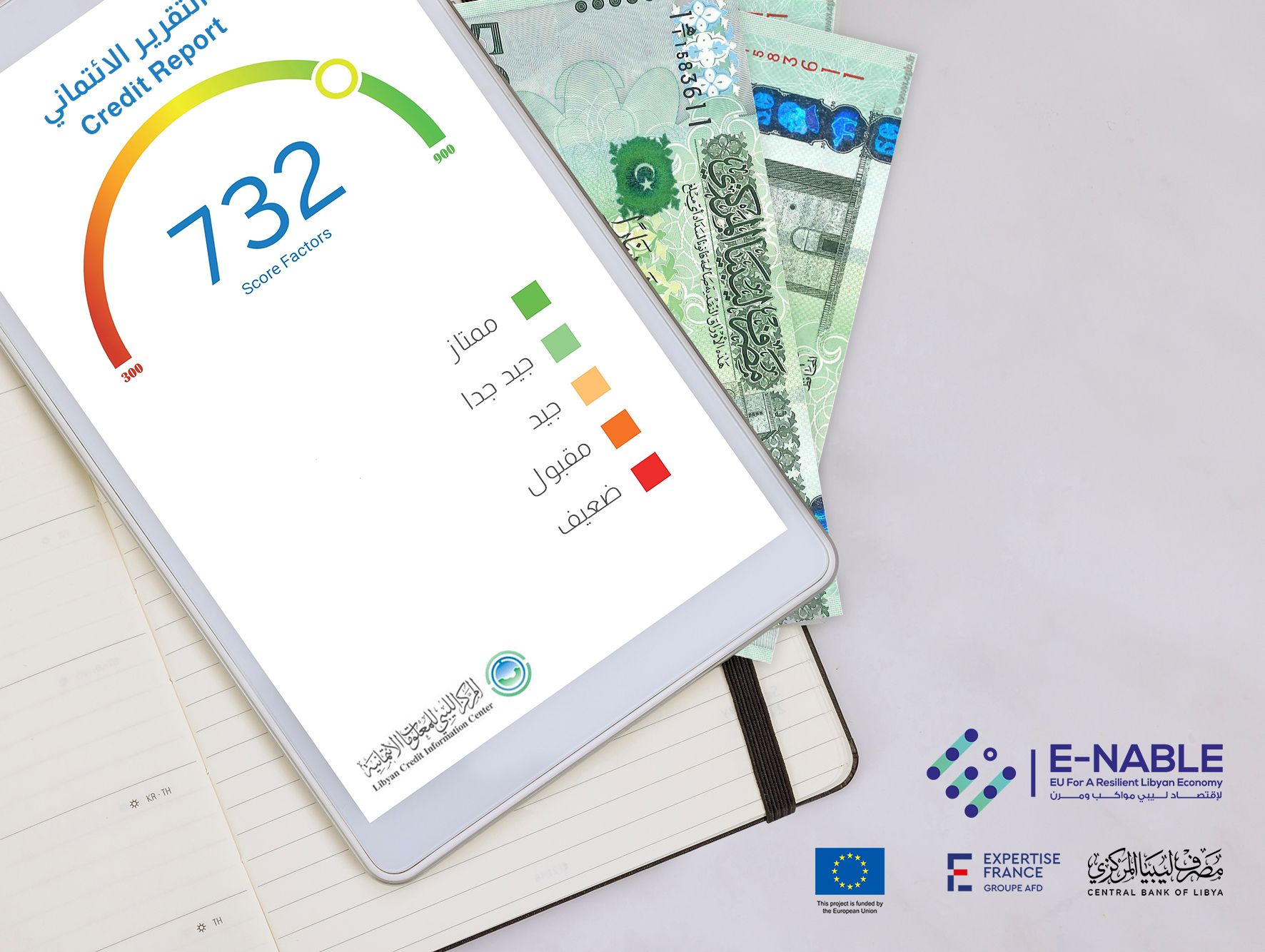News
Archive
- February 2025
- January 2025
- December 2024
- November 2024
- October 2024
- September 2024
- August 2024
- July 2024
- June 2024
- May 2024
- April 2024
- March 2024
- February 2024
- January 2024
- December 2023
- November 2023
- October 2023
- September 2023
- August 2023
- July 2023
- June 2023
- May 2023
- March 2023
- February 2023
- October 2022
- August 2022
- July 2022
- June 2022
- May 2022
- April 2022
Boosting Access to Finance in Libya: CBL Approves a New Legal Framework for Libyan Credit Information Centre
Tripoli, 30, January, 2024. New opportunities have opened for SMEs in Libya to secure financial support as the Central Bank of Libya (CBL) grants approval to the Libyan Credit Information Centre’s (LCIC) newly developed legal framework. This approval marks a significant milestone in developing the LCIC and increasing transparency, which will ultimately lead to improved access to finance and an enhanced business environment in Libya.
The development of the legal framework was made possible with the support of Expertise France through the E-nable project, funded by the European Union. The expertise and guidance provided through workshops and training sessions were key to ensuring that the legal framework meets international best practices and addresses the specific needs of the Libyan financial system.
Mr. Nabeil Abujnah, Head of the Libyan Credit Information Centre, said: “We welcome the approval of the new Libyan Credit Information Centre’s legal framework, recognizing its transformative potential and affirming our commitment to work with our international partners towards facilitating equitable financial access and enhancing the financial ecosystem across Libya.”
Mr. Nicola Orlando – EU Ambassador to Libya, commented: “We are delighted to announce that significant milestones were achieved through our collaborative efforts in the development of the Libyan Credit Information Center. It is another important contribution of the European Union to the Libyan efforts to develop a sound and productive business environment for all. The Centre operations are crucial for improving credit risk management and the quality of Libyan banks’ portfolios. Our tailored capacity-building workshops have equipped the Centre’s staff with specific expertise in credit information management, data protection and international standards. And this is a long-term partnership: we will continue building on this important achievement with a new programme further strengthening the Libyan financial sector, in collaboration with the Central Bank of Libya.”
The new legal framework for the Libyan Credit Information Centre primarily focuses on centralizing banking loans, enhancing transparency, and providing valuable credit information. It’s considered of great importance for several reasons:
- Legal Compliance: the legal framework is expected to make LCIC operate in full compliance with international best practices.
- Data Protection and Privacy: The regulatory framework establishes guidelines and standards for the protection of sensitive financial and personal information held by LCIC.
- Credibility and Trust: The regulatory framework is expected to enhance the credibility and trustworthiness of LCIC.
- Risk Mitigation: The regulatory framework is expected to help in identifying and managing potential risks associated with credit information.
- Credit Reporting: The regulatory framework is expected to encourage higher reporting rates by financial institutions and, therefore, the availability of more data.
“The endorsement of the legal framework for the Libyan Credit Information Centre marks an important milestone in advancing financial accessibility for SMEs in Libya and improving the business development environment in the country. We are proud and grateful to have partnered with the CBL and supported the development of this framework, which will enhance the flow of credit information and foster a more conducive environment for business growth in Libya, following international standards.” Said Mr. Julien Schmitt – Country Representative and Director of Programs at Expertise France in Libya.
With the legal framework in place, the focus now shifts to developing the LCIC’s operational capacity. Expertise France is collaborating with the Central Bank of Libya to ensure the LCIC has the necessary resources and expertise to enhance its operational efficiency and provide accurate, reliable, and timely credit information, thus contributing to business growth and economic prosperity in Libya.

